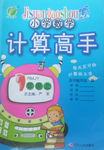题目内容
The host family treated me as though I ______ a member of the family while I was studying in France.
A. am B. were
C. would D. should be
练习册系列答案
 智能训练练测考系列答案
智能训练练测考系列答案 计算高手系列答案
计算高手系列答案
相关题目
题目内容
The host family treated me as though I ______ a member of the family while I was studying in France.
A. am B. were
C. would D. should be
 智能训练练测考系列答案
智能训练练测考系列答案 计算高手系列答案
计算高手系列答案